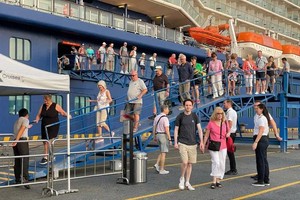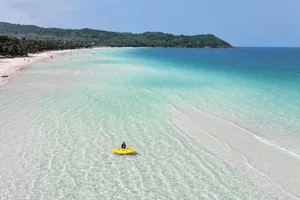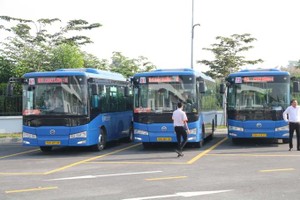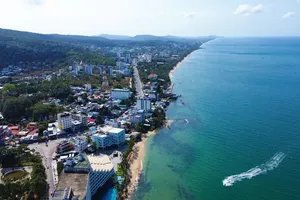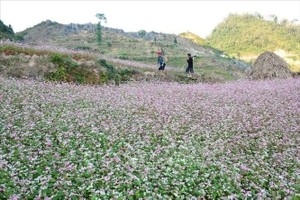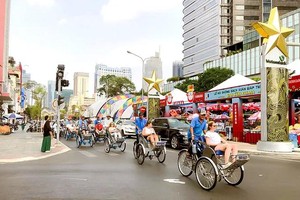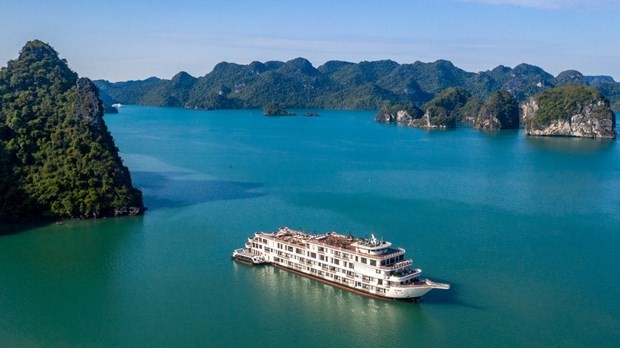 |
Ha Long Bay, a tourist magnet in Quang Ninh province (Photo: VNA) |
The tourist number includes 875,000 international arrivals. Meanwhile, earnings from tourism approximated VND24 trillion (US$997.3 million), up 1.6-fold from the same period last year, statistics show.
The province expects about 4.13 million visitors and VND9.8 trillion in tourism revenue in the third quarter to raise the nine-month figures to nearly 13 million and VND26.46 trillion.
During the National Day holiday from September 1 to 4, it attracted 380,000 tourist arrivals, including 24,500 foreigners, surging four-fold year on year, the provincial People’s Committee noted.
It went on to say that in the time ahead, it will continue tapping into local cultural values to serve tourism development while capitalising on marine and ecological tourism advantages, including Ha Long Bay – a world natural heritage site – and Bai Tu Long Bay.
Quang Ninh will also make better preparations to welcome international visitors and seek new sources of foreign tourists aside from maintaining traditional sources. One new tourism stream could potentially be developed by working with Muslim countries, among many others.
The provincial Tourism Department said Quang Ninh began the professional reception of Muslim tourists in line with the Muslim culture in late August. The department is planning to hold a workshop in mid-September to discuss the exploration of Muslim tourist markets and improvement of services for Muslim visitors.
If the number of Muslim tourists increases, the authority will encourage local hotels to align their infrastructure with the unique needs of these visitors, it added.
In addition, more events will be organised in the remaining months to attract visitors to Quang Ninh, it went on, saying that the province will unceasingly develop better service quality by increasing management of the tourism environment, ensuring security and safety for holidaymakers, examining the compliance with relevant regulations, and stringently dealing with law violations.
In its newly-approved plan on tourism recovery and sustainable development to 2025 with orientations to 2030, Quang Ninh aims to turn tourism into a spearhead and sustainable economic sector and attract at least 25.5 - 26 million visitors, including about 8.6 - 9 million foreigners, by 2030.
It targets between 16 million and 17.5 million tourist arrivals by 2024 and 2025, including at least 3 to 4.5 million international guests, respectively.
By 2030, the province will have established itself as a tourism hub connecting with the region and the world and also a leading tourist destination of Vietnam, with an annual tourist growth rate averaging 10 - 11% during 2025 - 2030.
The tourism sector is hoped to gradually increase its contribution to the province's gross regional domestic product (GRDP), to a share of 10 - 11% by 2024, 11 - 12% by 2025, and 15% by 2030.
Endowed with natural advantages for marine tourism, Quang Ninh boasts a coastline of over 250 kilometres and more than 2,000 islands of various sizes that account for two-thirds of the total island count in Vietnam.
In particular, Ha Long Bay, literally “the bay of descending dragons”, is recognised as a world natural heritage site by UNESCO twice, in 1994 for its globally outstanding aesthetic merit and in 2000 for its geological - geomorphological value.



